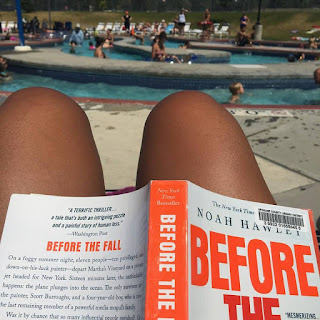Underground Airlines sets up a chilling reality: Abraham Lincoln was never actually president. He was assassinated, not at Ford's Theater shortly after beginning his second term, but instead on the way to serve his first. That means the Emancipation Proclamation was never issued. Slaves were never actually freed.
Fast-forward to now. Four states, "The Hard Four" still have legalized slavery. It's illegal for slaves in those states to escape and there are legal systems in place to catch those who escape. But, still, many try. They do so with the help of heroes along the way who make up the Underground Airlines - which is, really, no different than the underground railroad to which it refers.
The man at the center of our story is a man who was once a slave. He has been forced to work for the government as a bounty hunter to collect slaves who escape. He's really good at it. And, he's morally torn apart about what he has to do.
We catch up with Victor's story as he's hunting down an escaped slave named Jackdaw. You are able to see how the system works, how he does what he does, and you realize the dread he feels knowing he's ending every hope of freedom for someone very much like him.
And, you're along for the ride with Victor as he is forced to return to the Hard Four to try and uncover a secret that one man died to carry; a secret that could end the whole concept of legalized slavery once and for all.
The concept of this book is so compelling, I've had it on my list for months. I dove in, really expecting to be riveted from page one. Then, I really struggled to get through it. It wasn't just that the subject matter was dark and, in some aspects, a little too close to bringing to life some of the awful racial tensions and issues we're facing now. It's more that the ramp up to the real action of the book just took a little too long. I wanted to know more about Victor's past, which was revealed to us in too-small chunks along the way. I wanted to know more about the mechanics of slavery worked in the Hard Four and we were only given that in the very final chapters. It wasn't until Victor crossed the border back into the region that enslaved him that I really felt the pace of the novel pick up.
There are moments of beautiful writing in this book. There are true breath-gasping passages. And, you really do feel the moral conflict that Victor faces in his role as bounty hunter - you really see why he's doing this. But, the story loses steam in the spaces in between.
On Good Reads, I gave it 3 stars. I'd absolutely give it 5 stars for concept and character - and barely 3 stars for execution.












